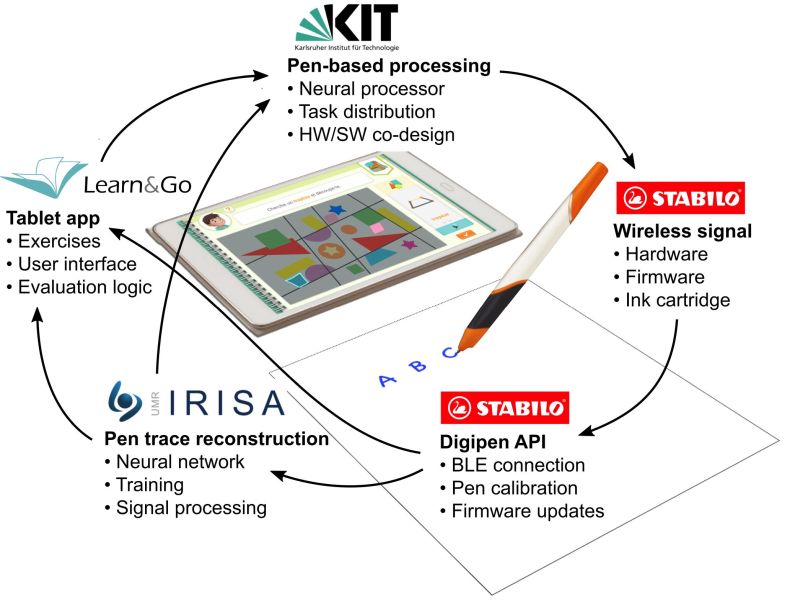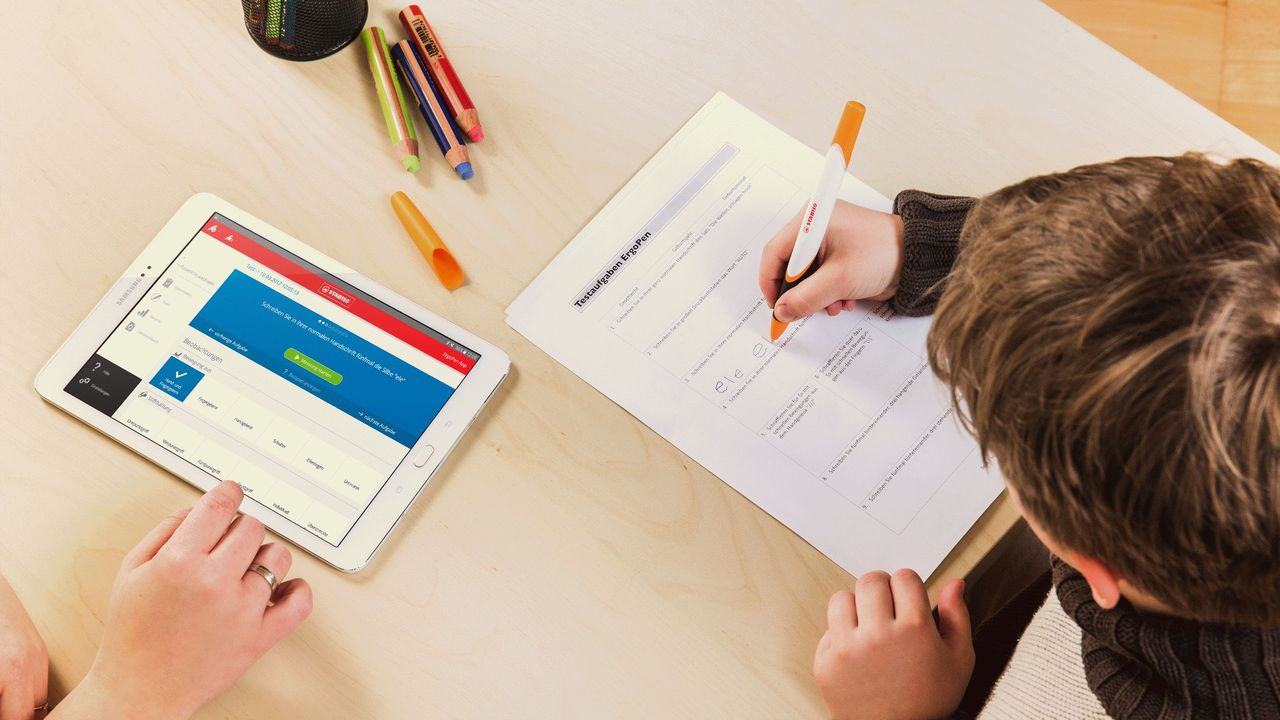A smart digital pen that helps persons learn to write is currently being developed in the framework of the German-French project “Kaligo-based Intelligent Handwriting Teacher“ (KIHT). The collaboration project funded by the German Federal Ministry of Education and Research is coordinated by Karlsruhe Institute of Technology (KIT). Within this project, researchers of KIT study algorithms of artificial intelligence (AI) that enable reconstruction of a writing trace and interpretation of handwriting. The smart learning device is to benefit as many pupils as possible.
Handwriting is an important tool of the knowledge-based society. Repeated studies revealed that writing a text by hand results in a higher quality of the result than typing. A new project is now aimed at helping people learn to write and combine handwriting with digital media. Within the project “Kaligo-based Intelligent Handwriting Teacher“ (KIHT), research and industry partners from Germany and France develop a smart digital pen. The innovative learning device resembles a conventional pen in terms of all major properties and can be used for writing on paper. However, it is equipped with inertial sensors that capture smallest changes on the free spatial axes and, hence, to detect any position in space. The smart digital pen can be connected to any commercially available mobile end devices, including a tablet, and interacts with the mobile Kaligo app. With the help of this app, exercises can be adapted individually and data can be synchronized and stored automatically.
Teachers Are Given More Freedom for Creative and Communicative Tasks
“Use of the smart digital pen together with an adequate computer program automatically supports the learning of writing. In this way, teachers and parents are given more freedom for creative and communicative tasks,” says Professor Jürgen Becker, Head of KIT’s Institute for Information Processing Technology (ITIV). The software and AI algorithms are mainly dealt with by the French partners L’IRISA (Institut de Recherche en Informatique et Systèmes Aléatoires) and Learn&Go, both located in Rennes. Learn&Go, for instance, has developed the mobile Kaligo app for training how to write. Integration of suited AI concepts in the embedded systems is in the focus of the German partners, KIT and the manufacturer of writing instruments STABILO International in Heroldsberg. The project is coordinated by KIT.
Researchers Develop Concepts for Integrating Algorithms
The group of Professor Jürgen Becker, ITIV, studies algorithms suited for reconstruction of a writing trace and for interpretation of handwriting. Researchers develop various concepts to integrate the AI algorithms as a function of the embedded hardware. Complexity of the entire system is distributed between both hardware and software, which allows for rapid and efficient AI execution. The aim is to enable online reconstruction of the writing trace from the sensor data and to develop efficient and miniaturizing hardware that can interact with all commercially available mobile end devices. At the end of the KIHT project, a practical test at a demonstration plant is planned. Team leader Dr. Tanja Harbaum (ITIV) underscores the great potential of the smart digital pen for schools in particular: “This project pools the competencies of high-ranking international partners from science and industry and is aimed not only at advancing research, but also at providing an innovative product that benefits many children.”

(Figure: STABILO International GmbH/KIT).
The Federal Ministry of Education and Research funds the KIHT project under its program to support German-French projects in the area of artificial intelligence. The project started in October 2021 and is scheduled for a duration of three years. The smart learning device will be made available to the largest possible group of users.
More Information: https://www.softwaresysteme.pt-dlr.de/de/deutsch-franzoesische-kooperation.php (in German)
More about the KIT Information · Systems · Technologies Center: https://www.kcist.kit.edu/
In close partnership with society, KIT develops solutions for urgent challenges – from climate change, energy transition and sustainable use of natural resources to artificial intelligence, sovereignty and an aging population. As The University in the Helmholtz Association, KIT unites scientific excellence from insight to application-driven research under one roof – and is thus in a unique position to drive this transformation. As a University of Excellence, KIT offers its more than 10,000 employees and 22,800 students outstanding opportunities to shape a sustainable and resilient future. KIT – Science for Impact.

